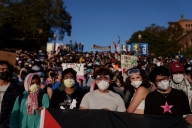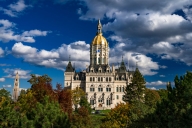You have /5 articles left.
Sign up for a free account or log in.
Fifty faculty members at Harvard University have created the Council on Academic Freedom at Harvard.
In an op-ed in The Boston Globe, Steven Pinker and Bertha Madras detail the attacks on academic freedom nationally and note that Harvard has not been immune. Pinker is Johnstone Professor in the Department of Psychology. Madras is professor of psychobiology at Harvard Medical School.
“The embattled ideal of academic freedom is not just a matter of the individual rights of professors and students. It’s baked into the mission of a university, which is to seek and share the truth—veritas, as our university, Harvard, boasts on its seal,” they said.
“The reason that a truth-seeking institution must sanctify free expression is straightforward. No one is infallible or omniscient. Mortal humans begin in ignorance of everything and are saddled with cognitive biases that make the search for knowledge arduous,” they added. “These include overconfidence in their own rectitude, a preference for confirmatory over disconfirmatory evidence, and a drive to prove that their own alliance is smarter and nobler than their rivals. The only way that our species has managed to learn and progress is by a process of conjecture and refutation: Some people venture ideas, others probe whether they are sound, and in the long run the better ideas prevail.”
What will the new group do? “Naturally, since we are professors, we plan to sponsor workshops, lectures, and courses on the topic of academic freedom. We also intend to inform new faculty about Harvard’s commitments to free speech and the resources available to them when it is threatened. We will encourage the adoption and enforcement of policies that protect academic freedom. When an individual is threatened or slandered for a scholarly opinion, which can be emotionally devastating, we will lend our personal and professional support.”
“Harvard is just one university, but it is the nation’s oldest and most famous, and for better or worse, the outside world takes note of what happens here. We hope the effects will spread outside our formerly ivy-covered walls and encourage faculty and students elsewhere to rise up. Eternal vigilance is the price of liberty, and if we don’t defend academic freedom, we should not be surprised when politicians try to do it for us or a disgusted citizenry writes us off.”








